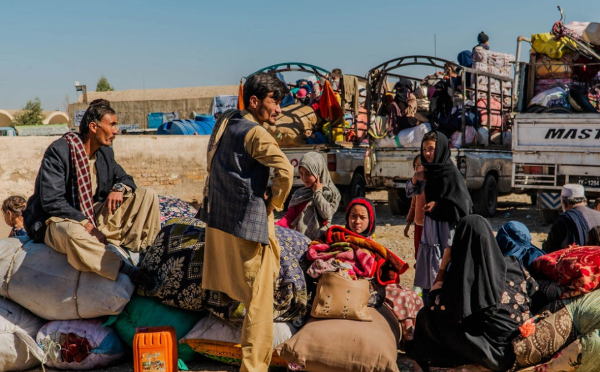The abrupt return of hundreds of thousands of Afghans just before the onset of winter is expected to worsen the countryís already severe humanitarian crisis, with greater competition for scarce resources - including housing, health services, and jobs, UNHCRís Representative in Afghanistan.

At the same time, humanitarian agencies are struggling with substantial funding shortfalls as well as trying to respond to the devastating earthquakes in western Herat province in October.
"The mass arrivals couldnít have happened at a worse time," said UNHCRís Representative in Afghanistan, Leonard Zulu. "We are dealing with many competing humanitarian needs and now huge numbers of arrivals, many without any family support or coping mechanisms here. It makes for a very grim winter and a difficult time ahead."
Abdul made the decision to leave Pakistan, the country where he had spent all his 23 years, in a matter of hours. He and his family, who include a baby son, hurriedly packed what they could in the night and set off for the border with Afghanistan the next morning. It was just one day before a 1 November deadline set by the Government of Pakistan for over 1 million undocumented foreigners to return to their countries. After the deadline, immigration enforcement measures would be applied.
Refugees like Abdul were officially exempted from the Governmentís repatriation plan, which was announced on 3 October, but UNHCR, the UNís Refugee Agency, and other UNís agencies, have received reports that registered refugees and other Afghans holding legal documents are also facing pressure from law enforcement authorities to leave Pakistan.
In total, more than 350,000 people have returned to Afghanistan since the announcement, and the number arriving at borders exhausted and in need of emergency assistance continues to grow.
LINK: https://www.ansarpress.com/english/28523
TAGS:






























 Farkhunda Buried, Ghani Appoints Fact-Finding Team
Farkhunda Buried, Ghani Appoints Fact-Finding Team




